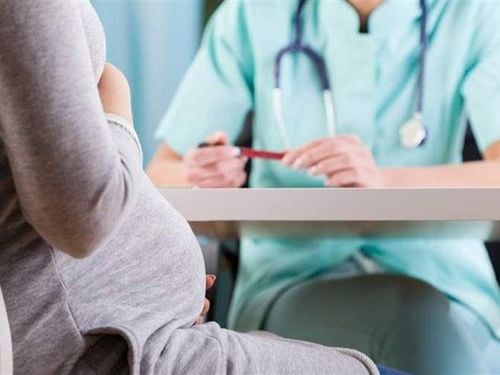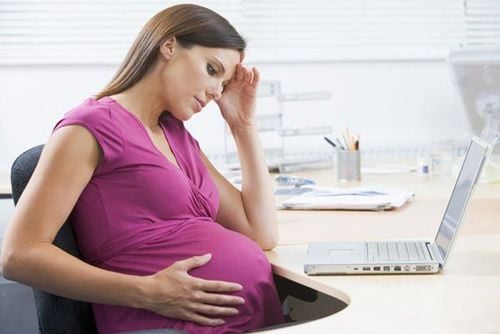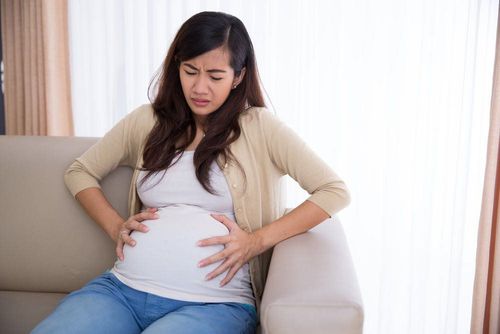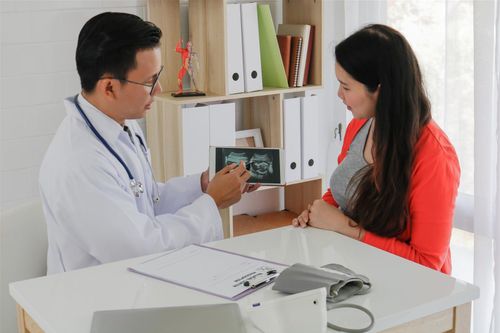This is an automatically translated article.
The article was professionally consulted by a Doctor of Obstetrics and Gynecology - Vinmec Central Park International General HospitalPre-eclampsia is one of the leading factors causing dangerous obstetric complications for both mother and baby. So what is preeclampsia? How to prevent complications of preeclampsia?
1. What is preeclampsia?
Preeclampsia is a disorder of pregnancy in which a woman's blood pressure is elevated, systolic blood pressure is 140 mmHg or higher, and/or diastolic blood pressure is 90 mmHg or higher, along with a condition in which protein is present in the urine, caused by damage to the target organ, the kidney. Preeclampsia is defined as high blood pressure, protein in the urine, and occurs from the 20th week of pregnancy.Preeclampsia will lead to many life-threatening complications for both mother and baby. For mothers, dangerous complications can be encountered eclampsia: convulsions occurring in pregnant women with pre-eclampsia, or HELLP syndrome: hemolysis, elevated liver enzymes, thrombocytopenia. For babies, it can lead to premature birth, fetal growth retardation in the uterus, and even death.
Until now, the cause of preeclampsia is not known for sure, but the following groups of women have a higher risk of developing preeclampsia.
Pregnancy with twins, triplets. Son (first child). Pregnancy at an advanced age (greater than 40 years old). Chronic hypertension (high blood pressure that occurs before 20 weeks). Have a history of diabetes or kidney disease. Had preeclampsia. There are familial and genetic factors. Mother is undernourished during pregnancy. Being overweight or obese during pregnancy.
2. Symptoms of Preeclampsia
Pregnant women should immediately go to reputable medical facilities for timely examination and diagnosis if they have the following pre-eclampsia symptoms:From the 20th week of pregnancy, high blood pressure appears: blood pressure ≥ 140 /90 mmHg. Protein in the urine > 0.3g/l.- Edema of hands and feet, however, also because in normal pregnancy there is often accompanying swelling, so sometimes symptoms are missed.

Tình trạng phù tay, chân trong khi mang thai
Changes in vision: blurred vision, loss of vision, sensitivity to light. Weight gain can be up to > 2 kg/week. Pain in the epigastrium. Persistent headache with vomiting and nausea.
3. How is preeclampsia treated?
Currently, there are no means or drugs that can treat preeclampsia. The best, most definitive treatment is termination of pregnancy. However, the time of termination of pregnancy also needs to be ensured with risk factors for the health of the mother and the health of the baby. If it is too early, the baby will have many complications caused by premature birth; if it is too late, the condition of pre-eclampsia can be life-threatening for the mother, especially in severe pre-eclampsia. Therefore, the time to terminate pregnancy is still a dilemma that needs careful consideration with both doctors and families. Therefore, in order for the pregnancy to take place completely and safely, pregnant women need to be regularly and closely monitored to ensure the safety of both mother and child.With mild preeclampsia: (i.e. preeclampsia with only hypertension not exceeding 160/110 mmHg with protein in the urine) can be treated as an outpatient, without hospitalization, but should be closely monitored:
Follow up every week. Monitor blood pressure every four hours while awake. Monitor weight, urine, count fetal movements every day.
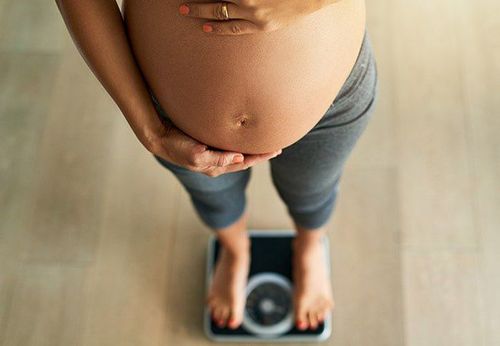
Theo dõi cân nặng, nước tiểu, đếm cử động thai mỗi ngày
Get plenty of rest, eat normally. Do fetal chromosomes every week or every 2 weeks (set up obstetric monitor). Do fetal growth chart every 2 weeks. Pregnant women need to be instructed about signs of worsening: headache, blurred vision, epigastric/lower-costal pain, little urine, dark urine, decreased fetal movement... Need to go to hospital as soon as there are signs of worsening or The fetus shows signs of growth retardation.
For severe pre-eclampsia: High blood pressure, proteinuria, multiple organ dysfunction: oliguria, elevated liver enzymes, thrombocytopenia, impaired consciousness ... then the problem stops. pregnancy will be in place. At the hospital, pregnant women will be closely monitored: blood pressure every 6 hours, weight, urine, necessary tests such as blood count, liver enzymes, kidney function, fetal ultrasound, chromosomes.. . along with absolute rest and give more sedatives, lower blood pressure if necessary. Depending on the gestational age and condition of the mother, the doctor will make appropriate recommendations.
4. How to prevent preeclampsia?
Pregnant women need to actively prevent and detect pre-eclampsia in pregnancy even more important, to avoid dangerous complications for both mother and baby. Measures to prevent preeclampsia include:4.1 Periodic antenatal check-up
Adequate antenatal care is essential. Women should adhere to the schedule of antenatal care appointments, to have their blood pressure measured as well as assess the protein status in the urine to detect pre-eclampsia in time.. For women at high risk of pre-eclampsia. eclampsia such as: diabetes, kidney disease, pregnancy at an advanced age, family history of preeclampsia, or preeclampsia in a previous pregnancy, you need to talk to your doctor for advice, according to To be closely monitored.. In order to be examined and detect obstetric diseases quickly, pregnant mothers can register for the Maternity Package at hospitals with specialists such as Vinmec International General Hospital.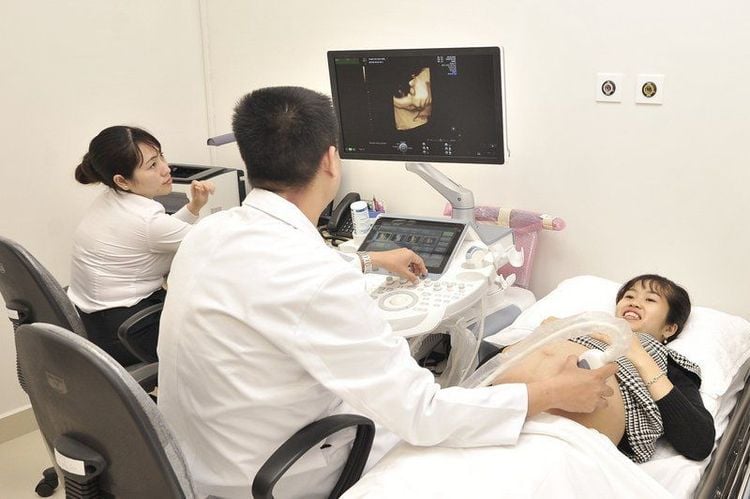
Thăm khám và phát hiện các bệnh lý sản khoa nhanh chóng tại Vinmec
4.2 Watch for signs
Pregnant women need to know the signs and symptoms of preeclampsia so that when they encounter it, they can diagnose the disease in time. Because if it is not detected early and in time to have appropriate monitoring and treatment measures, it will have many serious consequences that can threaten the life of both mother and baby.4.3 Adjustment of diet and rest
During pregnancy, the mother needs to have a scientific diet, moderate rest, reasonable. Scientific diet is a diet full of protein, calcium, vitamins such as vitamin C, vitamin D along with trace elements such as magnesium, folic acid. Combined with a suitable exercise regimen to avoid obesity and overweight, it will help the mother have good health and a healthy pregnancy. In addition, the regime of work and rest needs science, as well as pregnant women need to keep themselves a stable and comfortable spirit for a smooth pregnancy.In summary, preeclampsia is a serious obstetric event occurring from the 20th week of pregnancy, which should be closely monitored because preeclampsia can lead to many dangerous complications for both mother and baby. The prevention of complications can happen early if you follow the antenatal care fully and monitor your pregnancy in accordance with the advice of your doctor.
Please dial HOTLINE for more information or register for an appointment HERE. Download MyVinmec app to make appointments faster and to manage your bookings easily.




